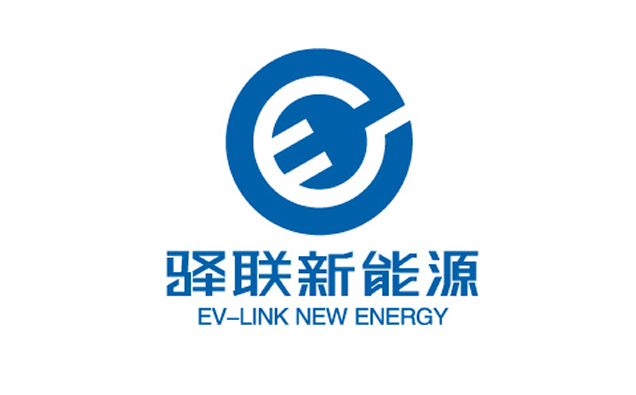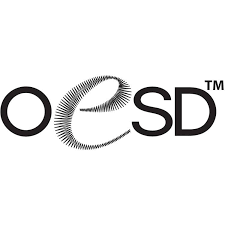About the lab
The Purdue Supply Chain Lab aims to provide a research and experiential learning platform to engage scholars, students and corporate partners and promote world-class advanced data and decision analytics research and applications in business operations.
People
Principal investigator: Zhan Pang
Current Students:
- OUR Interns: Sitong Chen (Krannert)/Jiayi Zou (Krannert)/Chelsea Elizabeth Lu (IE)
Past PhD Students and Academic Visitors
- Linggang Qi (2016-2023)
- Zhendong Pan (2019-2020) Associate Professor in Dongbei University of Finance and Economics
- Qiulin Yang (2015-2019) Assistant Professor in Shenzhen Technology University, China
- Pedro Crespo del Granado (2010-2014) Senior Researcher in Norwegian University of Science and Technology (NTNU)
Alumni advisors
|
Names |
Industrial Roles |
|
Jeffrey R Powers |
IBM executive (retired) |
|
Don MacKay |
Sears executive (retired) |
|
Mary Slater |
Shell TechWorks Business Excellence Manager |
|
Dave Stowe |
Adventus Innovate Consulting, Partner |
|
Nilo Cedeno |
Wabash National, Sr. Strategic Sourcing Specialist |
|
Nick Rosso |
Eli Lilly, Supply Chain Associate |
|
Logan Barr |
PepsiCo, Process Engineer |
|
Dayne Arnett |
Crowe, Stuff consultant |
Corporate Partnerships and Consulting Projects
We are developing close partnerships with our alumni, including many industrial leaders and rising stars, as well as corporate partners to offer our students the unique experiential learning opportunities while are are studying in the classes.
Corporate Partners
Dow Chemical
https://www.dow.com/

Project: Co-Product Inventory Management
Corteva Agriscience
https://www.corteva.com/

Spring 2023 Project: Creating a sustainable agriculture supply chain
Wabash National
https://onewabash.com

Spring 2023 Projects:
- Request for Proposal (RFP) for propane and bulk tank welding
- Forecasting and Inventory Optimization for Dry Trailer Floors in the US
- Optimizing Delays in Deliveries from External Suppliers
EV-Link New Energy (EV charging operating service provider)
http://www.ev-link.com.cn/

Spring 2023 Project: EV charging network analysis
- EV drivers charging behavior analysis
- Dynamic pricing and revenue management for EV charging network
- Assessing carbon footprint of EV car usage and the contribution of EV charging network
- Business model innovation for EV charging network
Luohu Geriatric Hospital
https://www.szlhyy.com.cn/info/1249/9033.htm

Project: Operational Process Optimization and Data Analytics for Elderly Care and Home Care
OESD
https://embroideryonline.com/

Fall 2022 EMBA Project: Strategic Sourcing
Kardex
https://www.kardex.com/

Fall 2021 EMBA Project: Go-to-market Strategy for Automated Storage Solutions
Undergraduate Research Projects
Undergraduate research can be funded by Office of Undergraduate Research (OUR) Scholarship or Discovery Park Undergraduate Research Internship (DURI) without course credit, or unfunded with independent study credit.
2022 Fall OUR Project: Supply Chain and Manufacturing Operational Excellence for Sustainable Business Models
Team: Sitong Chen (Krannert, Senior), Joyce Zou (Krannert, Senior), Lu, Chelsea Elizabeth (Engineering, Junior)
2021 Fall OUR Project: Optimizing Distribution and Allocation Strategies for Covid-19 Vaccines
Team: Hui Zeng (Sc&Info&Analytics, Senior), Congshi Pu (Sc&Info&Analytics, Senior),
2021 Spring OUR Project: Managing Supply Chain Disruption Risk for Coronavirus Outbreak
Team: Hui Zeng (Sc&Info&Analytics, Senior), Quan Wang (Economics Honor, Senior), Shuoyao Li (Sc&Info&Analytics, Senior)
2020 Fall OUR Scholarship: Managing Medical Supply Chain Disruption amid Covid-19
Team: Hui Zeng (Sc&Info&Analytics, Senior), Quan Wang (Economics Honor, Senior)
Abstract: The COVID-19 pandemic is threatening human lives and the world economy. Personal protective equipment (PPE) became an essential medical resource. The shortage of PPE was often reported by the media and it was perceived as supply chain disruption. U.S. manufacturers are blamed for relying on offshoring significantly and asked to move their supply chain backshore. Is it true that there was a significant disruption in the PPE supply chain during the pandemic? Is the global supply chain for PPE resilient for the U.S.? What’s the profile of the current global PPE suppliers? How to build a more transparent global PPE supply chain? What are the implications for policymakers to manage the supply chain disruption risks? We collect the PPE trade data from various sources, which allows us to review the facts in the global PPE trade before and after COVID-19. We next perform time series analysis to analyze the trend of the global PPE trade and difference-in-difference model to analyze the effect of COVID-19 on the global PPE trade. Counter to the general perception, we found there was no significant disruption in the global PPE supply chain; it is rather flexible and resilient. We use Python programming to construct a PPE global supply chain map and identify the number of suppliers with trade flows between countries indicating production capacity, which provides a highly transparent global supply chain map for decision-makers. Our study shed new light on the current debate about PPE disruption and U.S. manufacture backshoring.
Presentation on 2020 Fall Purdue Undergraduate Research Expo
2020 Fall: Long-term Care and End-of-Life Care (DURI and Smart Health Lab Internship)
Team: Sophie Qi (UPenn, Sophomore) and Evelyn Cai (Purdue, Non-degree freshman)
2020 Spring: Predictive Analytics for Coronary Heart Disease
Team: Megha Reddy (Public Health, Senior)
Abstract: Predictive modeling was done on a dataset acquired from the Framingham Heart Study using statistical methods like principal component analysis and logistic regression. This was used to identify high-risk cardiovascular disease (CVD) groups. Using this, my research makes recommendations directed towards managing these high-risk CVD groups during the COVID-19 pandemic.
The identified high-risk CVD groups included (1) older adults (2) males (3) smokers (4) hypertensives (5) pre-diabetics and diabetics. The odds of getting heart disease was calculated for each key risk factor and increased with increasing age, number of cigarettes smoked, and stages of medically diagnosed hypertension and glucose levels. These groups were also at increased risk of morbidity and mortality from COVID-19 and comprise the majority of those hospitalized for the virus. Recommendations were made to manage these high-risk groups during COVID-19 in the areas of (1) immediate isolation (2) reorganization of the medical task force and (3) medical management.
While there is an abundance of knowledge and data identifying high-risk CVD groups, we lack policies built around efficient population health management of these groups. There is a need to use big data to direct policies that recognize, prevent, as well as manage chronic conditions in these groups. This project makes risk-specific recommendations to manage adverse outcomes due to COVID-19 in these groups that are actionable through local public health departments and governments. This can potentially help curb poor health outcomes and lower the hospital burden posed by these groups, especially in times of health crisis.
2020 Spring Purdue Undergraduate Research Expo (3rd place under interdisciplinary posters).
2020 Spring: DURI Scholarship Project: Predicting Postoperative Deliverium after Intracranial Surgery
Team: Juliet Aygun (Mathematics, Sophomore), Alaina Bartfeld (Krannert, Sophomore), Sahana Rayan (CS and Applied Stat, Sophomore)
Abstract: Delirium has a high morbidity rate and is common; around ten percent of older, hospitalized patients have delirium, and fifteen to fifty percent of patients experience delirium during hospitalization. This puts delirium at the forefront of problems for which concern doctors and nurses look. The vast majority of journal articles about delirium focus on postoperative delirium (POD) in the Intensive Care Unit (ICU) ; however, none are specific to post-intracranial surgery. In this way, our research is distinct from others in this area. The purposes of this research project are to employ machine learning methods which accurately predict whether a post-intracranial surgery patient will be diagnosed with POD in the ICU, and identify the key predictors of POD. If POD could be predicted, many patients would experience a shorter hospital stay, less marginal complications, and a greater life expectancy. With our model, the onset of POD could ultimately be stopped. We first conducted detailed dimensional reduction on our dataset by employing factor analysis and elastic net classification to prevent overfitting of the model. After, we trained a neural networking model to predict POD. This model was eighty-five percent accurate, and we found the key predictors of POD are whether the patient had delirium when they were admitted into the ICU, the type of lesion they had (if any), and if their blood was carrying enough oxygen. This was supported by chi-square analysis, which proved all the variables are statistically significant at any alpha level. Our work has been recognized by different Purdue University research organizations. We are published in the 2020 edition of the Journal of Purdue Undergraduate Research (JPUR). In the journal, we have a smaller scale, abstract-like piece of writing that briefly summarizes our findings that will be published over the summer of 2020. In addition, we were selected for a 10-minute oral presentation in the Spring 2020 Undergraduate Research Conference that goes more in-depth about our work. In this presentation competition, our research project won third place out of all Krannert School of Management undergraduate researchers who also got selected for an oral presentation. We are grateful for the opportunities Dr. Zhan Pang has given to us through this project, and we are proud of the work we have produced with him.
Presentation in Spring 2020 Purdue Undergraduate Research Conference

